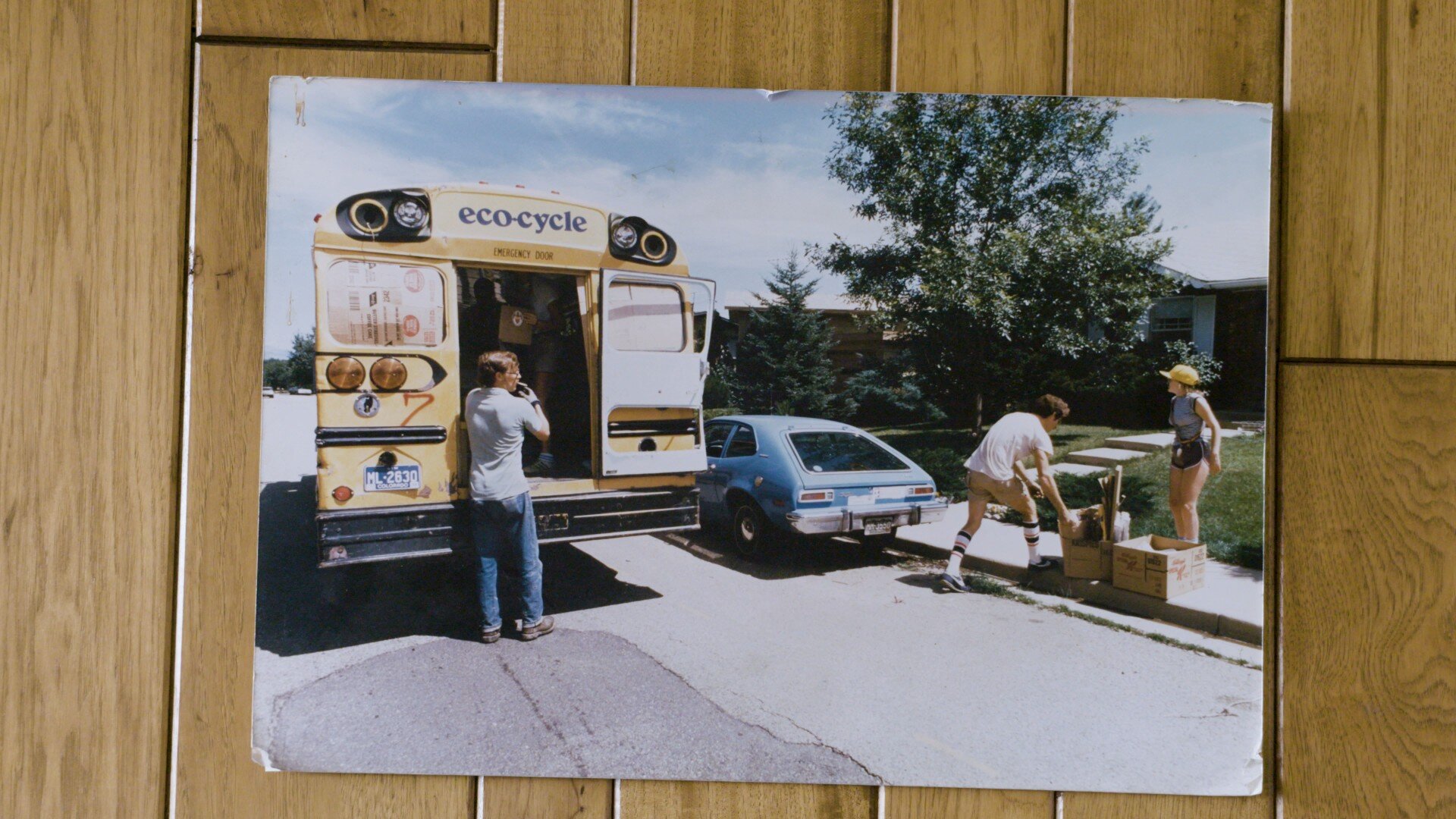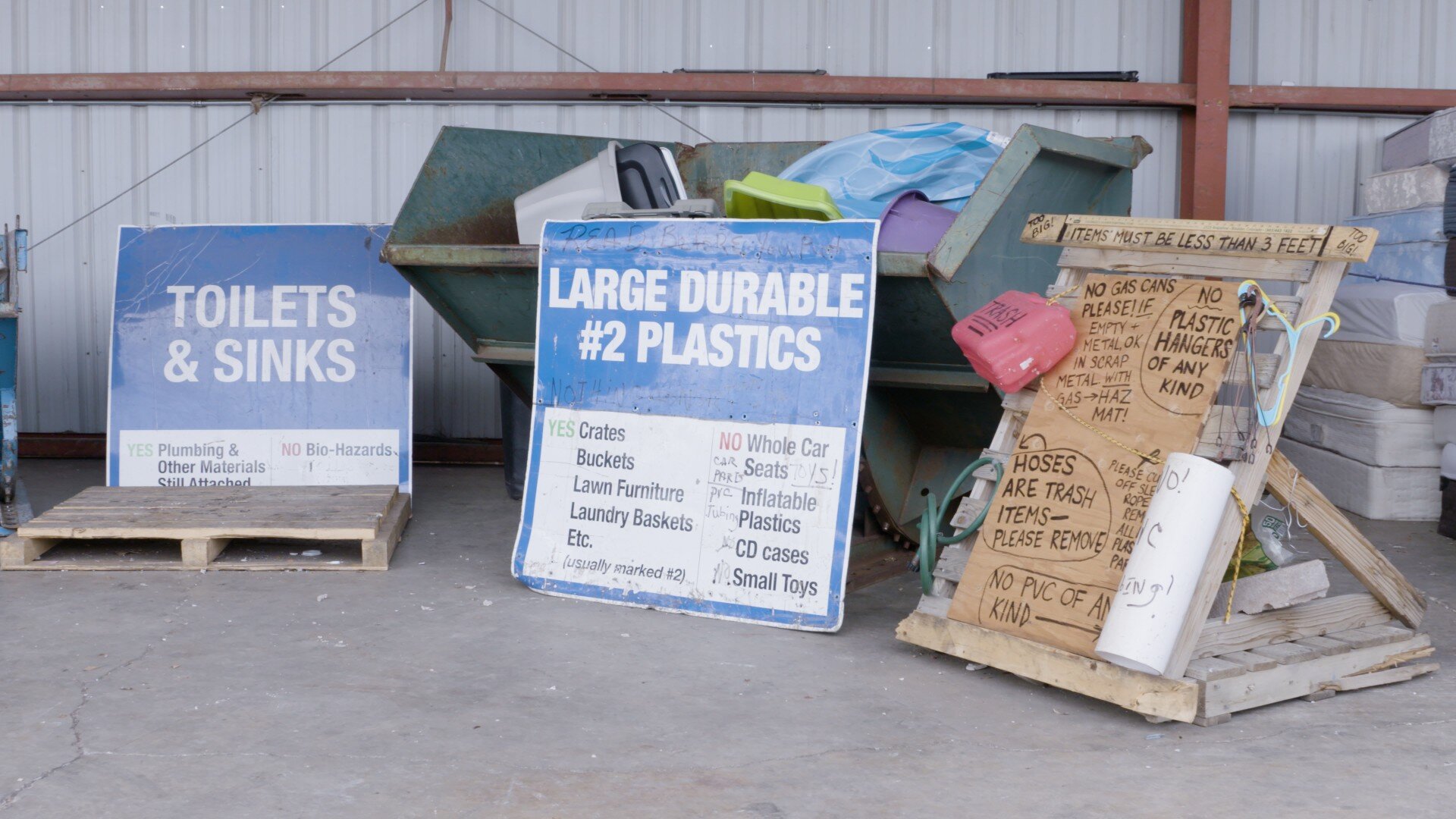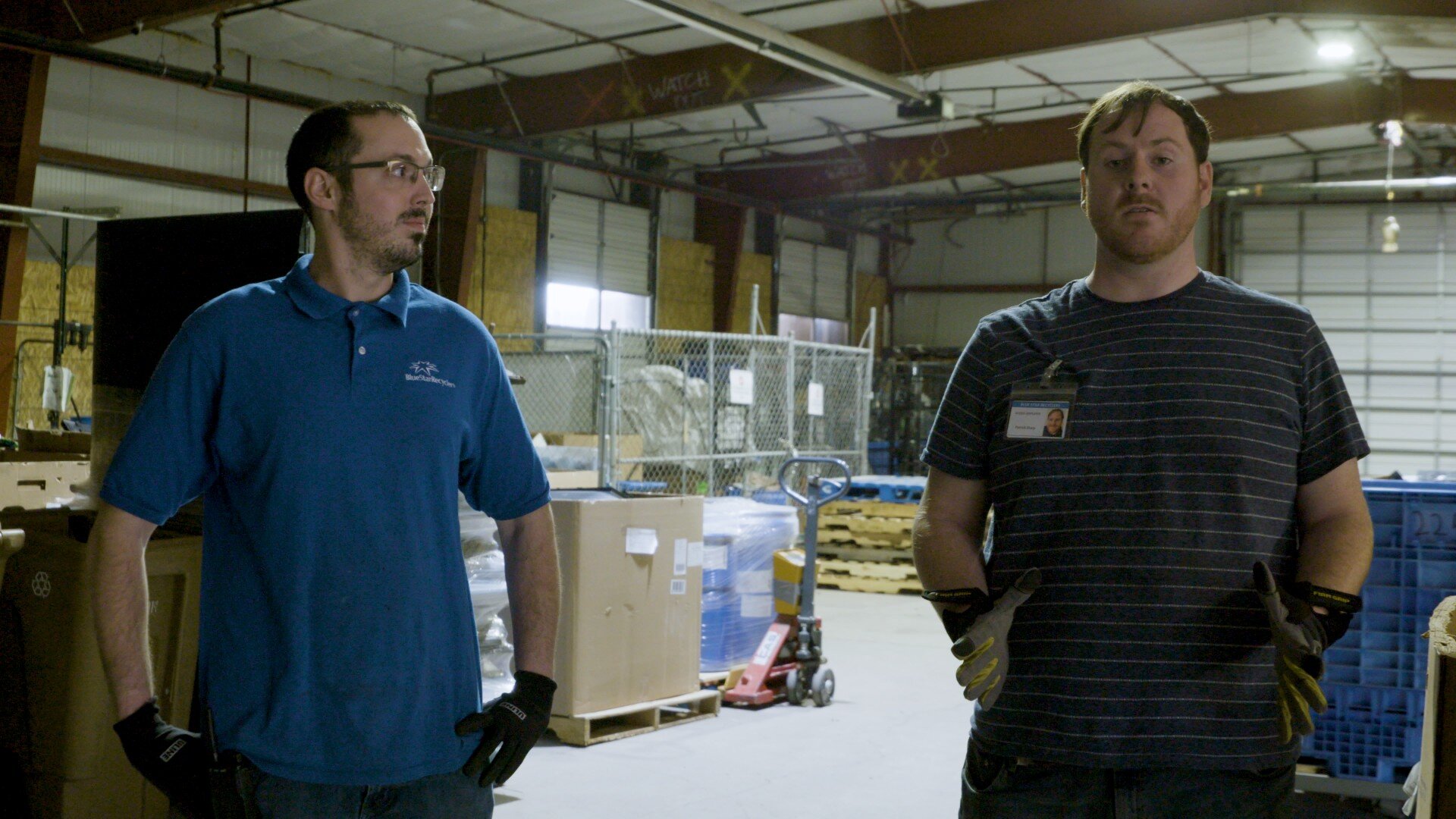Failure, triumph and opportunity for Colorado’s waste system

BOULDER, Colo. — The U.S. Environmental Protection Agency estimates that over 40% of the country’s greenhouse gas emissions result “from production, transportation, use and disposal of material goods.”
“So, zero waste solutions like recycling, composting and reducing waste are really important answers to the climate crisis we're facing,” said Suzanne Jones, executive director of Eco-Cycle, one of the largest and oldest nonprofit recyclers in the country.
“We brought curbside recycling to Boulder back in the 70s, and we've been helping to build zero waste communities ever since … to foster a more equitable, sustainable and climate resilient future,” she continued.
For example, Eco-Cycle is home to CHaRM, the Center for Hard-to-Recycle Materials. Metal, refrigerators, toilets, mattresses and much more wait in stacks on the center’s property to be recycled properly.
But Colorado as a state, compared to others, is terrible at waste diversion.
For the past five years, Eco-Cycle and the Colorado Public Interest Research Group, or CoPIRG, have compiled the annual report, The State of Recycling & Composting in Colorado.
“So, we've really been looking in depth at: how are we doing in recycling, what's working, where are the challenges, and what are the opportunities?” said Kate Bailey, the Policy & Research Director at Eco-Cycle.
In 2020, the organizations found that Colorado’s recycling and composting rate was 15.3% in 2020.
“Nationwide, the rate is 32%, so Colorado is less than half the national average,” said Bailey. “We are absolutely falling behind.”

They identified one primary challenge: recycling is not convenient and accessible across Colorado. Bailey and Jones found that only 30 cities in the state have a recycling service that accompanies their trash service. Unfortunately, six out of 10 of Colorado’s largest cities do not have this kind of program in place.
“If I'm a resident, I have to go out of my way and pay extra to try to find a company to help me recycle,” Bailey said.
And this is not the only obstacle. Colorado also has low landfill rates — less than half that of the national average, according to Bailey.
“So, our landfills are really cheap and that makes it really hard for recycling and composting to compete economically,” she said.
Colorado’s geography creates more challenges — since the state is a long way away from most of the larger manufacturing hubs in larger coastal cities, Colorado must ship most of its recyclables out of state, which not only takes money but contributes to greenhouse gas emissions overall.
The exception to this is glass recycling: In Broomfield, Momentum Recycling processes glass and sells it to Rocky Mountain Bottling Company or Owens-Illinois. These companies remanufacture glass bottles and sell them back to producers.
“Within six weeks, it will have gone through that process and be back on the shelves as a new bottle,” Jones said.
This local system not only allows for greater recycling but decreases emissions of the industry.
But after identifying the top challenges, Jones and Bailey feel confident there are solutions just within reach. In fact, they have identified policies, programs and models that could work — and some that are currently working.
The best recycling cities in Colorado have “a couple common denominators,” Bailey explained.
“First, they make recycling convenient … if you have a trash can, you've got the recycling bin right there next to it,” she said.
Many of these communities, like Aspen or Boulder, have also gone further and provided curbside pickup or drop-off centers for composting.
Second, these communities provide a financial incentive to recycle through a system called volume-based pricing. Trash is a flat rate in most of Colorado, which means residents can produce as much trash as they want and pay the same price.

Switching to volume-based pricing might influence some residents to reduce their trash production.
“It means the more trash I produce, the more I pay … and the less trash I produce, the less I pay,” explained Bailey. “It's a lot like how we pay for water and our electricity.”
Even with these solutions, Bailey and Jones know that state-wide systemic change is needed to tackle the problem.
“And we can't burden local governments with trying to make that change … we have to look at the producers of the packaging and what is their role in helping to support recycling.”
[Related: No more plastic utensils in Denver, unless you request them]
Now, they are working with Colorado legislature to transform recycling statewide — through producer responsibility policy, which puts the responsibility onto the companies that make products and packaging so that they have a role in funding the state's recycling system, explained Bailey. “And in turn, they get those materials back to be made into new products.”
Rep. Lisa Cutter, a Littleton Democrat, will be introducing a bill to the state legislature that require the Colorado Department of Public Health and Environment (CDPHE) to select a nonprofit that will implement a recycling program in the state by March of 2023. The program would be funded by producer responsibility dues. Eco-Cycle is supporting the legislation.
For Eco-Cycle that is what it is all about: creating a circular economy so that materials are used over and over again.
“We can't just recycle our way out of this problem,” Bailey said.
This is why Eco-Cycle pushed for Colorado to become the first non-coastal state to ban the use of single-use plastic bags. But Jones highlighted that moving in this direction is not just about keeping materials out of landfills. It is also about job creation.

“[Colorado’s] recycling, composting, reuse and remanufacturing [industries] account for some 86,000 jobs, which is nine times more jobs than landfills and accounts for over eight and a half billion dollars’ worth of economic activity in our state,” she said.
One of Eco-Cycle’s partnerships showcases how such job creation can have an impact on everyone: Blue Star Recyclers at the CHaRM facility.
Blue Star Recyclers employs nearly 50 people “with autism and other disabilities and recycles around 10,500 tons of electronic waste each year at five sites in Colorado and Illinois.”
Patrick Sharp has been an employee of Blue Star Recyclers for six years, which is almost as long as the program at Eco-Cycle’s facility has been around.
“One of my favorite things about working at Blue Star is the sense that I’m doing good for the environment,” he said.
Eco-Cycle also hopes to work with organizations and the state legislature to establish a circular economy center in Colorado that could support more innovational programs and partnerships.
“It would create more economic activity by attracting businesses that use recycled materials to make new products and fostering entrepreneurial new businesses to address waste streams and help support existing recycling businesses,” said Jones.
She said there are a lot of reasons Eco-Cycle has does what it does for so long, from jobs to natural resources to climate change.
“We, after all, have one planet,” she said.
Clarissa Guy is a multimedia journalist at Rocky Mountain PBS. You can reach her at clarissaguy@rmpbs.org.